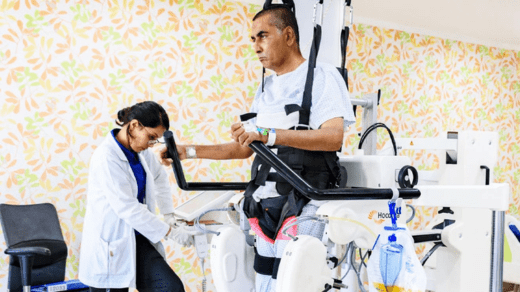Rehabilitation is a remarkable journey that has the power to transform lives. In this discussion, we’ll explore 15 pros and 15 cons of rehabilitation success stories, highlighting the incredible transformations that can occur, as well as the challenges and complexities often associated with the rehabilitation process.
Pros of Rehabilitation Success Stories:
- Improved Function: Rehabilitation can restore lost or diminished functions, enabling individuals to regain their independence.
- Inspiration: Success stories inspire hope and motivation in others who are on a similar path.
- Pain Reduction: It often leads to the effective management and reduction of pain.
- Enhanced Mobility: Many individuals experience improved mobility and reduced physical limitations.
- Quality of Life: Success stories are often accompanied by an improved overall quality of life.
- Emotional Well-Being: Rehabilitation can boost mental and emotional well-being, reducing anxiety and depression.
- Personal Growth: Individuals often grow personally and develop resilience through the process.
- Sense of Achievement: Success stories bring a sense of accomplishment and empowerment.
- Role Models: These stories create role models who inspire others to pursue rehabilitation.
- Positive Impact on Families: Families of the individuals undergoing rehabilitation benefit from the success stories.
- Awareness: Rehabilitation success stories raise awareness about the importance of rehabilitation.
- Reduced Stigma: They help reduce the stigma associated with disability and rehabilitation.
- Community Support: Success stories often garner community support for rehabilitation programs.
- Innovations: They drive innovation in rehabilitation methods and technologies.
- Improved Self-Esteem: Successful rehabilitation often leads to increased self-esteem and confidence.
Cons of Rehabilitation Success Stories:
- Not Universally Achievable: Rehabilitation success is not universally achievable for every individual.
- Varied Timelines: Recovery timelines can vary greatly, leading to frustration for some.
- Financial Strain: The cost of rehabilitation can be financially burdensome for many.
- Complex Cases: Success stories often represent more straightforward cases, not the complexity of all rehabilitation situations.
- Dependency on Care: Some individuals may remain dependent on caregivers or assistive devices.
- Setbacks and Relapses: Even after success, there is a risk of setbacks or relapses.
- Emotional Toll: Rehabilitation can take an emotional toll on individuals and their families.
- Overcoming Stereotypes: Rehabilitation success stories may face stereotypes and misconceptions.
- Lack of Access: Not all individuals have access to rehabilitation services.
- Cultural Sensitivity: Success stories may not account for cultural or individual differences.
- Limited Long-Term Care: Some patients require ongoing care that rehabilitation cannot provide.
- Varied Support Systems: Success stories may not acknowledge differences in support systems.
- Privacy Concerns: Rehabilitation success stories may pose privacy concerns for the individuals involved.
- Unexpected Complications: Success stories may not always address unexpected complications.
- Lifestyle Adjustments: Rehabilitation often requires significant lifestyle adjustments.
While rehabilitation success stories are sources of inspiration and motivation, it’s essential to recognize that they represent just a portion of the rehabilitation journey. The decision to pursue rehabilitation should consider individual circumstances, needs, and challenges, with an understanding that progress may involve setbacks and complexities. However, the potential for transformation and improved quality of life through rehabilitation remains a powerful testament to the resilience of the human spirit.

